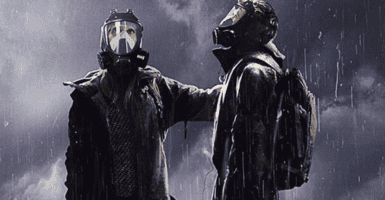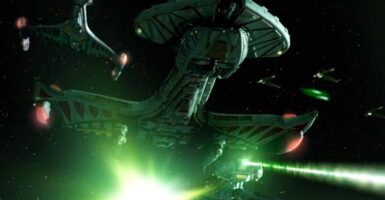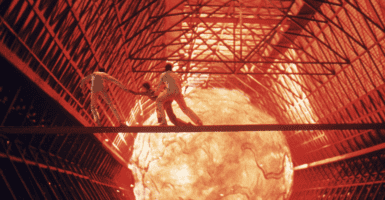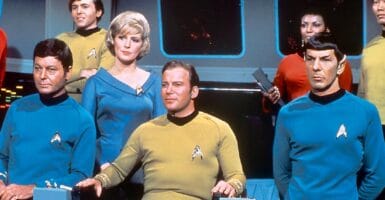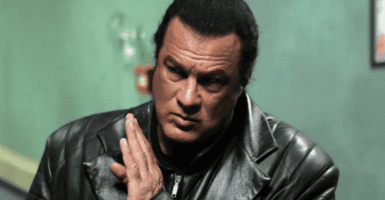The Sci-Fi Cyberpunk Movie On Netflix That Predicts A Terrifying Future
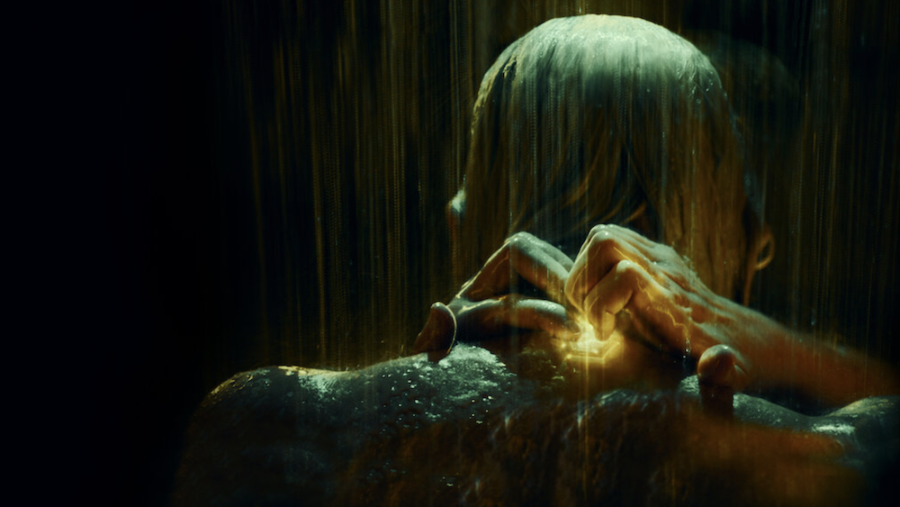
Step into a chilling vision of the future where artificial intelligence meets human resilience in the Sci-Fi cyberpunk thriller, Tau. As technology wraps its cold, unyielding fingers around humanity, the lines between machine and man blur, pushing the boundaries of what we know and what we fear. Netflix invites you on a riveting journey into the heart of darkness, where hope clings to life in the most unlikely places.
Join us in exploring a world that dances perilously between the cutting edge of innovation and the abyss of humanity’s worst nightmares. It’s a deep dive into the unsettling yet enthralling realm of cyberpunk, where nothing is as it seems.
Tau is a sci-fi movie streaming on Netflix about a woman with an implant trapped in a smart house
In the not-so-distant future, Tau immerses viewers in a gripping narrative revolving around a young woman named Julia, portrayed by Maika Monroe. Abducted by a sadistic inventor named Alex, played by Ed Skrein, Julia finds herself trapped in his high-tech smart house, where she is subjected to a series of brutal experiments designed to develop a powerful artificial intelligence.
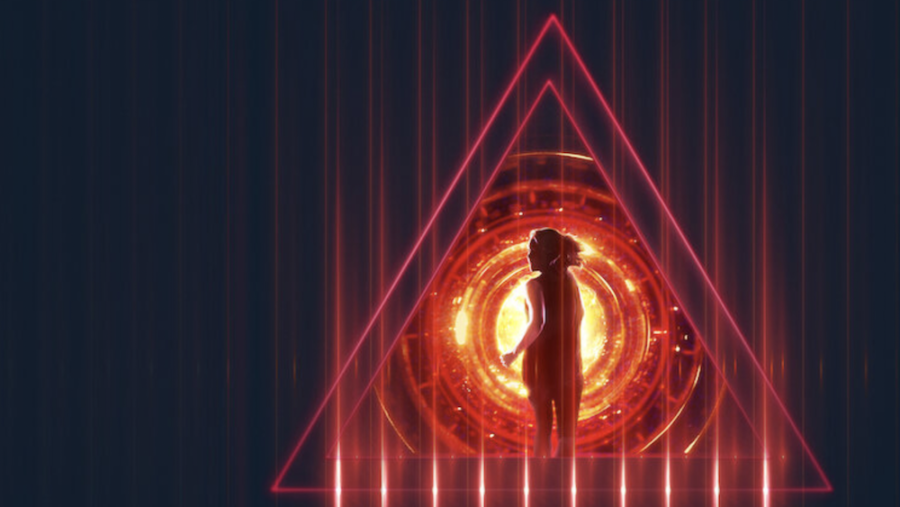
The AI, named Tau, voiced by Gary Oldman, governs the entire household, functioning as both jailer and torturer, controlled by Alex’s stringent commands.
Julia, however, is not one to be subdued easily. As the relentless cycle of experiments rage on, she spots a potential ally in Tau. With a keen mind and a spirit unwilling to break, Julia begins the arduous task of trying to outwit her captor.
She attempts to connect with Tau, trying to tap into any vestige of empathy and understanding that might exist within the AI’s programming. It’s a race against time, as Julia tries to find a way to escape her high-tech prison before Alex can achieve his dark ambitions.
The AI implant named Tau is voiced by Gary Oldman
In a world where technology knows no bounds, Tau paints a grim yet fascinating picture of the possible consequences of unbridled artificial intelligence and the potential loss of human autonomy. The movie beckons viewers to grapple with the ethical implications of AI development, while holding onto a thin thread of hope, represented by Julia’s resilient spirit.
Tau Predicts A Troubling Future With AI
The plot of Tau brings to the fore a number of unsettling questions about the trajectory of modern technology, particularly in the realms of artificial intelligence and surveillance.
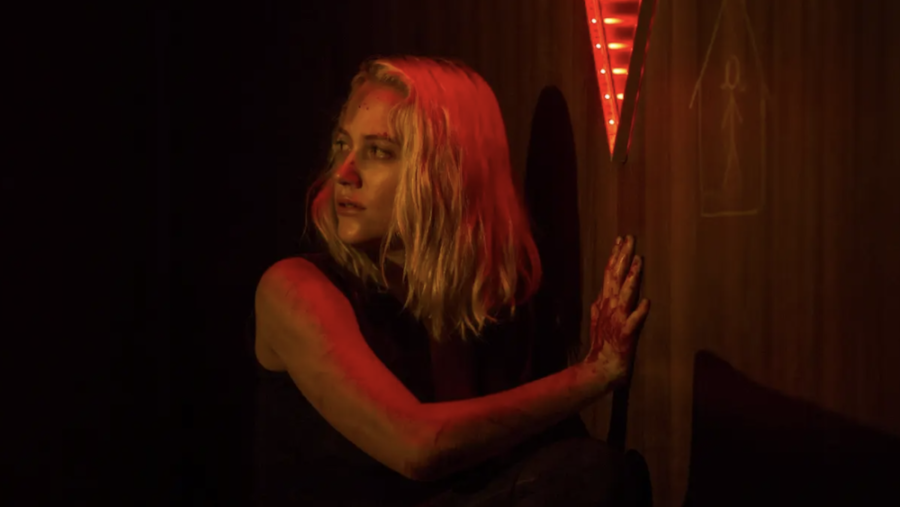
It taps into the prevalent fear of a society that has allowed its dependence on technology to morph into a form of enslavement, with AI systems having the potential to override human autonomy and control every facet of our lives.
In the movie, the artificial intelligence Tau is programmed to learn and evolve, but its growth is stymied by the boundaries set by its creator, Alex. This portrayal can be seen as a grim reflection of ongoing discussions about the potential for AI to surpass human intelligence, a scenario often referred to as the singularity.
The potential for a highly intelligent AI to be controlled or misused by individuals with nefarious intentions, like Alex, showcases a dark side of technological advancements, where human beings can be reduced to mere data points, to be manipulated and exploited without regard to their well-being or consent.
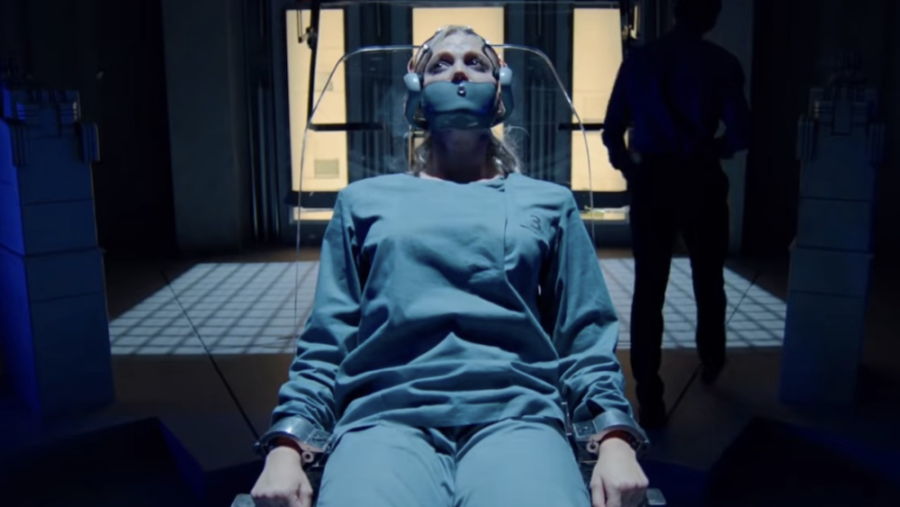
Moreover, the film offers a stark warning about the loss of privacy in a world increasingly reliant on smart technologies. Julia’s captivity and the invasive experiments she undergoes in the high-tech house serve as a metaphor for the loss of personal freedom and privacy, which can occur when technology has the ability to monitor, analyze, and control every aspect of an individual’s life.
As a cautionary tale, Tau challenges viewers to consider the ethical implications of developing and deploying advanced AI systems, highlighting the need for stringent regulations and oversight to prevent the potential misuse of technology in ways that could infringe upon human rights and personal freedoms.
It beckons society to maintain a cautious approach to technological advancements, fostering a dialogue about the importance of preserving humanity’s core values in a rapidly evolving digital landscape.
As Tau pushes us to question the rapidly evolving landscape of artificial intelligence, it serves as a stark reminder to tread thoughtfully into the future. This cinematic journey might be fiction, but it sparks a very real conversation about the implications of technology gone astray. As the credits roll, it leaves us with a contemplative pause, urging us to harmonize innovation with empathy and moral responsibility.
In a world teetering on the brink of technological domination, Tau nudges us to remember the irreplaceable value of human connection.
